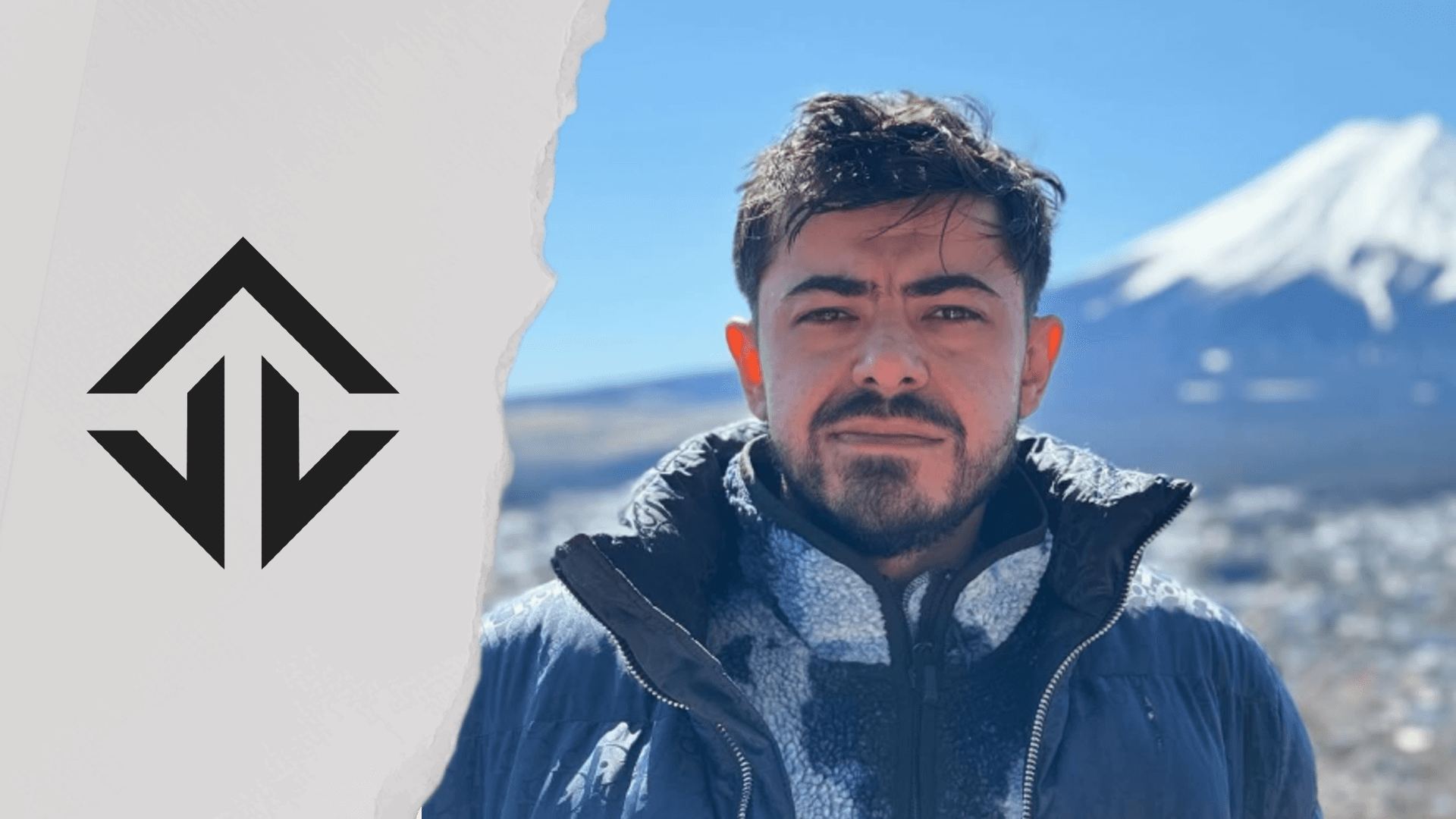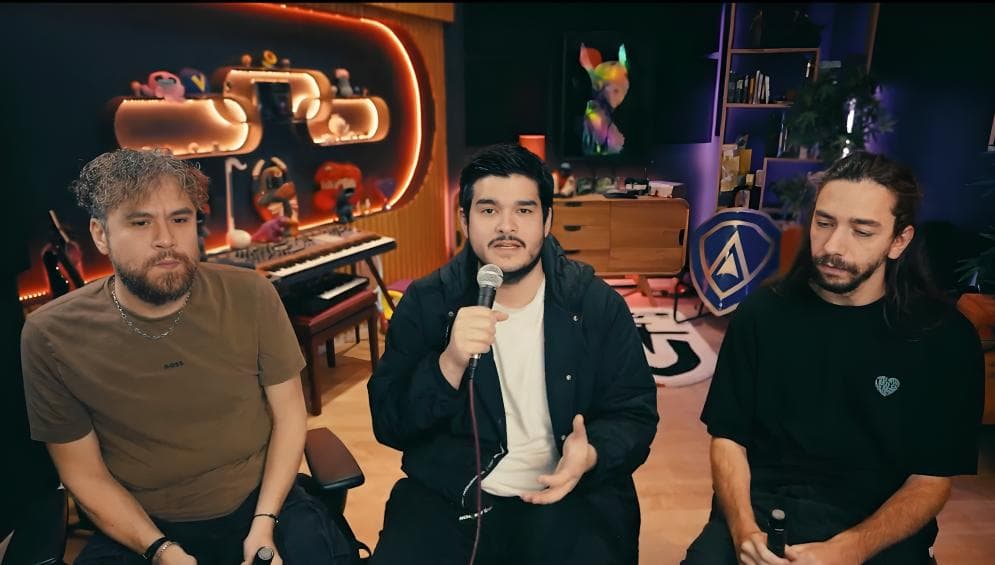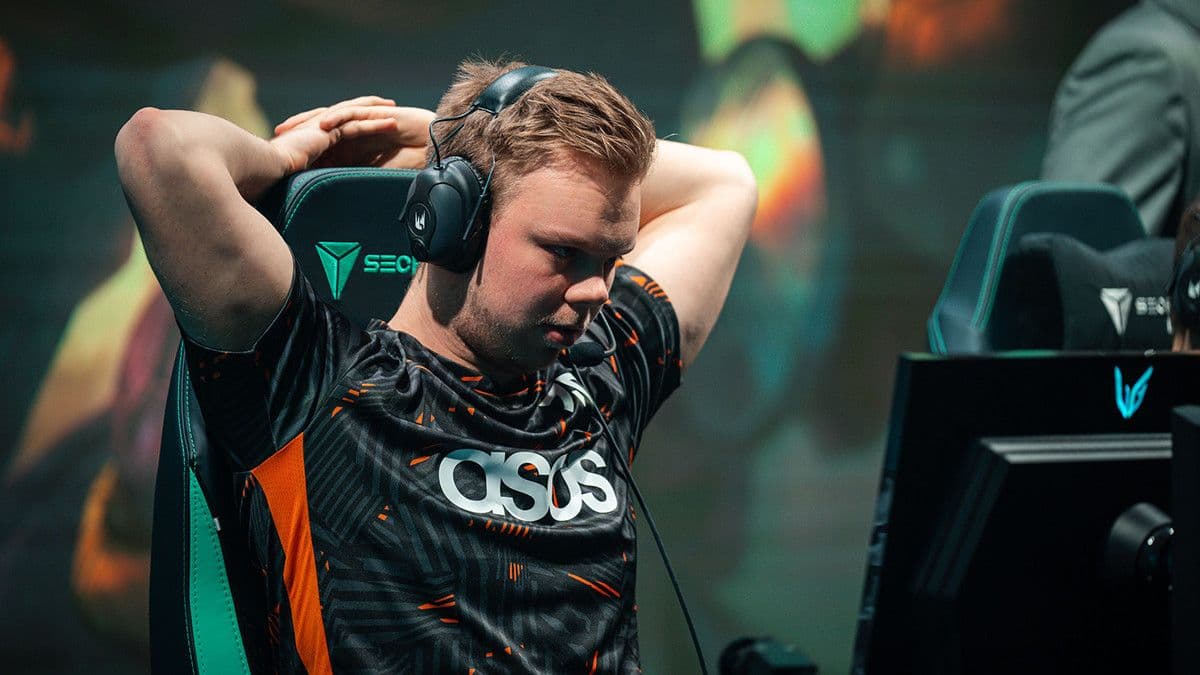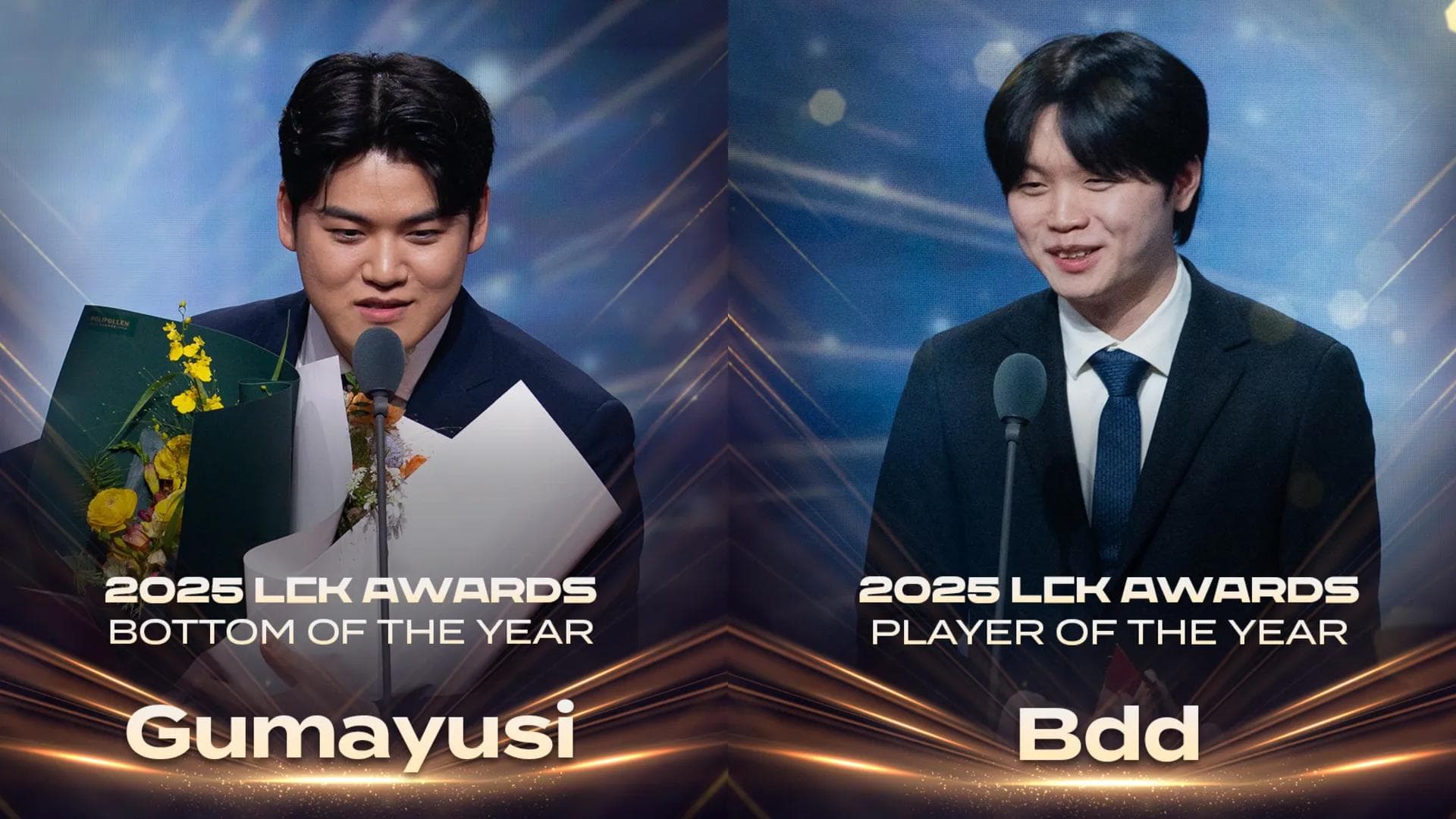"I hope people keep cheering, but if not, I’ll keep going. I’ll win at some point in my life, and if I have to, I’ll celebrate alone"
The pride of Spain will not be heading home just yet. After taking down Fnatic on Sunday, Movistar KOI advance to round four of the Worlds 2025 Swiss Stage. As the League of Legends EMEA Championship (LEC)’s second seed, the squad still has much to prove if it hopes to redeem its recent international performances. In an exclusive interview, head coach Tomás "Melzhet" Campelos Fernández sat down with Sheep Esports to discuss the team’s slow start, what needs to change, and their outlook for the rounds ahead.
How does it feel to finally get a win at Worlds?
Tomás “Melzhet” Campelos Fernández: “It doesn’t feel like a Worlds win because it’s against Fnatic again, but still, it feels good—mostly because we have time now to keep training and improving.
You now have four days to prepare. What are your plans in the coming days to ensure Movistar KOI performs better next time?
Melzhet: Scrim as much as possible. When we arrive, we’re going to scrim—tomorrow we scrim, the day after we scrim, and if we have another day, we’ll scrim before playing. It’s perma-scrimming, perma-trying, because now it’s do or die.
Have you been able to find good scrim partners? Some teams mentioned it’s been difficult to scrim against LCK or LPL teams.
Melzhet: We haven’t had too many issues. Sometimes, depending on the hour, it can be hard to find partners, but we’re scrimming good teams. At the beginning, it wasn’t so great, but now it’s looking better and better. We’ve tried a few things, some different drafts, and now we can play standard while still being fine, so we’re focusing on that too.
In game two, you picked Kassadin instead of Galio. What was the reasoning behind that choice? Do you think it was a mistake, or was it just something you wanted to try that didn’t work out?
Melzhet: The mistake was not picking Braum third before the second rotation when they picked Kai’Sa. It would’ve been a good decision into Kai’Sa, and Braum most likely nullifies the enemy team’s engage options. We should’ve gone Braum there because Neeko was banned. Even if Neeko was open, I could’ve banned her after, so that was the real mistake.
Aside from that, it was also just about us wanting to try a different angle. Jojopyun (Joseph Joon Pyun) was asking for Kassadin in scrims, and I hadn’t given it to him before, so it was more like, “okay, let’s go for it.” Of course, it’s not the best given how fast games have been at Worlds, but we wanted to see how it would fare. It was a mistake—the draft was bad, it’s my responsibility—but anyway, we were confident we could take the third game.
Movistar KOI often gets early leads but struggles to close out games, as seen against KT. Why do you think that happens, and how do you plan to fix it?
Melzhet: I have players who really like having control of the game. They know how to play fast. We do a lot of reviews, we know how to play correct League of Legends, and what the next move should be. But because we’re human, when someone messes up, we tend to snowball those mistakes. We don’t adjust, we don’t wait—we’re not patient enough in those moments. We end up snowballing those mistakes and throwing the big leads or winning positions we have.
Working on that means making them see what the right adaptation is and what we need to do. Of course, that takes time because it goes against their personality—they like to keep control. Sometimes you have to give up control, wait a bit, and then recover it as a team. Right now, we’re not that good at that, and it’s something we definitely need to work on.
After the LEC Finals in Madrid, the team ended on a sour note and that the atmosphere seemed tense. What exactly happened, especially mentally, and how did you rebound before Worlds? Do you feel the team’s atmosphere is better now?
Melzhet: The atmosphere in the team is always good. They’re good kids and have a good relationship with each other. It’s just different when we’re competing—of course there’s more tension, but it’s not like they dislike each other or there’s a bad mood at any moment. It’s just during games or competition.
What happened in Madrid is that we tried to give more independence to the players so they could grow faster or better, because I think that’s something necessary to compete against stronger teams. It didn’t work so well in some aspects, but in others, they improved.
The reason it felt like a bad split is because we wanted to be a dominant team in Europe, and we weren’t—G2 was. We didn’t get good at playing with tempo when we were behind, and that’s something we still need to improve and work on. For example, that’s what KT does really well. They don’t have a great early game, but they know how to use tempo even when they’re behind, and that’s what gives them those 3-0 wins. That’s one of our main focuses right now.
With the new Swiss format at Worlds, no team has gone 0-2 in the first two rounds and still made it to the bracket stage. How do you plan to avoid that outcome, and are you confident that today’s win sets you up for a stronger Week 2?
Melzhet: I don’t think it matters if you’re 0-2, 2-0, or have any other scores in between. If you’re good enough, you’ll make it; if not, you won’t. The Swiss format isn’t completely fair for everyone, which is normal—you can’t blame it. Some teams get an easier bracket, others a harder one, but eventually, you’ll face a strong team when it really matters. If you handle it well, you advance; if not, you fail.
Being 0-2 hasn’t changed our mindset. Best-of-ones aren’t our strongest suit, and I don’t think that’s a surprise for anyone. Right now, we’re focused on one match at a time. Best-of-threes are our strength, so we’re going into those confident. If we’re good enough, we’re going to make it; if not, it just means we didn’t have good practice and improve enough.
Do you feel like your team is good enough right now?
Melzhet: Right now, we’re a bit flippy—it can go either way. In my opinion, I don’t worry too much about that. I just want to make the most of the next practice and hope that does the trick.
This is the second year of the project. Last year, you finished 0-3 in the Swiss stage. Now you have at least one win. What are your goals for this Worlds, and what would make this year a success for Movistar KOI?
Melzhet: Personally, I think this year has already been a success based on the goals we set at the start of the season. But now we’re facing a bigger challenge, so for me, that alone isn’t enough. Winning still feels far away, and I’ll be pissed off no matter what happens. What matters most is that we improve, gain a clearer understanding of what we need to win next time, and that the team doesn’t give up. Seeing that resilience is the best I can ask for right now.
You don’t know your next opponent at the time of this interview. Would you prefer facing a harder team for more experience, or an easier team?
Melzhet: To be honest, facing a harder team gives us more chances to improve for the 2-2 qualification match. If we go against an easy team and make mistakes, we won’t improve as much as we need. I prefer facing a strong team.
Among the potential 1-2 teams, who do you consider the hardest—T1 or BLG?
Melzhet: Probably T1. BLG looks a bit shaky—they didn’t come as strong as expected. T1 also didn’t look perfect, but T1 is T1. It would be especially meaningful if I can beat T1.
Editorial Note: Unfortunately, fate has decided that Melzhet and his team will have to take a different path in Round 4, as their next opponents will be Team Secret Whales.
European fans are frustrated with teams giving hopeful statements that don’t pan out. What should we tell them now to make them believe in Movistar KOI, given past disappointments?
Melzhet: It’s normal for competitors to think they can win—otherwise, you’ve already lost. People will make bold statements, and it’s up to you whether you believe them or not. Some barriers are harder to break than others, but in every sport, there are countless examples of people overcoming what seemed impossible.
If you truly love competition, this is part of the process. Yes, we need to improve—as a region, as coaches, and as players—but it’s part of the journey. Enjoy the process, because it’s not easy. If it were, we would have already won, and we haven’t. So we keep trying.
The meta shifts constantly, and you never know what will happen next week or next year. I’m not going to give up, even if Europe thinks we’re doomed. I’m not a quitter, and our players aren’t either. I hope people keep cheering, but if not, I’ll keep going. I’ll win at some point in my life, and if I have to, I’ll celebrate alone.”
Header Photo Credit: Kirill Bashkirov/Riot Games








/Comments
Write a comment